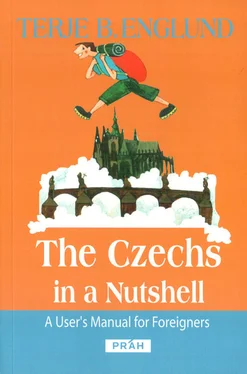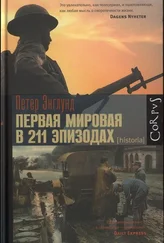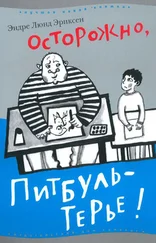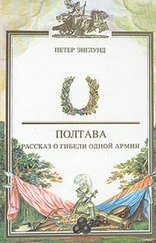So, have the Czechs’ relations to the Russians changed after the fall of the Iron Curtain? The answer seems to be both yes and no.
On a political and economic level, the relations have indubitably improved (that is, from a Czech point of view). A milestone was passed in June 1991, when the last Red Army soldier left Czechoslovakia, and few Czechs shed tears when the Soviet Union was dissolved a couple of months later. Then add Germany as the Czech Republic’s main trade partner, membership in NATO and the EU, and the picture gets clear: Moscow has to treat the Czechs as any other smaller, Western country.
Yet the common suspicion of everything Russian still persists. Now, many Czechs believe, they are not threatening us with their tanks or political pressure, but with their criminals!
It’s hard to judge whether these allegations are exaggerated or not. Yes, the enormous privatisation, the lack of official control, and the legal chaos that characterized the Czech Republic in the first half of the 1990s attracted criminals from every corner of the world, including the former Soviet Union. The question, however, is whether “Russian-speaking persons”, which is the official Czech euphemism for inhabitants of the former Soviet Union, are over-represented among foreigncriminals.
When it comes to ordinary street crime, police statistics suggest that they are not. However, after Prague police (in 1995) made an unsuccessful attempt to arrest Semyon Y. Mogilevich, an alleged Mafia godfather, otherwise sober observers concluded that that Russian Mafia has picked the Czech Republic as the centre of its illegal operations in Central Europe. Money laundering, often through property acquisition, is said to be one of their favourite activities, but it is not a kind of crime that represents an acute threat to ordinary citizens.
What’s undisputed, though, is that life in the Czech Republic again has become attractive to affluent Russians. While their mother country is mired in economic turbulences and political unpredictability, the Czech Republic offers stable conditions in a relatively safe environment, only a few hours’ ride from Germany. In addition, the language barrier is minimal, and cities like Prague and Karlovy Vary have a cosmopolitan atmosphere, so it’s quite easy for the Russians to adapt to local conditions.
Combined, these factors have led to a repetition of the Russian migration to Bohemia and Moravia during the First Republic. Currently, about 12.000 “New Russians” have settled in the Czech Republic, and like the interwar wave, most of the newcomers have university degrees or thriving businesses — a majority of the hotels in the spa city Karlovy Vary, for instance, are owned by Russians (see: TV Nova).
Still, history has left a deep scar. Contrary to the immigrants from post-Czarist Russia, the immigrants from post-communist Russia are not treated with respect, but with suspicion and often even silent contempt. Most Russians, on the other hand, don’t bother to integrate in the Czech society, and tend to create their own islands within it.
But there are evident signs of some timid changes. In 2002, many Czechs were flabbergasted by media reports that the most generous private contributors to the planned reconstruction of the Charles Bridge — Czech statehood’s most revered symbol — were actually members of the local Russian community. ScepticalCzechs certainly concluded that local Russians were only buying themselves a better image. But even so, the mere fact that the Russians have started to care what the Czechs think about them is an undisputed improvement.
If you see a photo from the most recent EU summit and wonder which of the politicians is the Czech representative, here’s a clue: go for the guy who has paired his business suit with sandals and white socks.
This is, of course, a slight exaggeration (and maybe also a bad joke), but the fact is that the Czechs, partly because of the 41 years of communist isolation (see: Ocean), and partly because they have made such a fetish out of pohodlí (comfort) have developed a dress code with a few rather extravagant components.
Probably the most widespread and frequent of these extravagances is Czech men’s long-lasting love affair with the aforementioned sandals. As soon as you can sniff the vapour of spring in the air and the thermometer climbs to a few degrees above zero, practically any Czech male is capable of putting on sandals. And even more intriguing — the sandals are almost always combined with socks, preferably white.
A foreignermight argue that the weather is either so hot that you wear sandals on bare feet, or it’s so cold that you wear socks and normal shoes. But that’s not the Czech way of reasoning. The most die-hard sandal freaks will keep both sandals and socks on their feet nearly until Christmas, and for hordes of puzzled foreigners, the sandals have been elevated to a place alongside beeras the very icon of Czech culture.
It’s hard to give a satisfactory explanation of Czech sandal frenzy. Perhaps it has political reasons — just as the Iranian Ayatollahs urge men not to wear Western neckties, the Bolsheviksdiscreetly filled stores with sandals because they represented the proletarian antipode of capitalist patent-leather shoes. Or maybe it’s just an uncompromising war against foot sweat, although Czech men usually don’t seem to mind sweat from other parts of the body. In any case, a foreigner should be prepared for the fact that the average Czech man regards sandals as completely ordinary shoes and may wear them on practically any occasion.
A special division within the Czech sandal army is formed by the otužilci (literally “hardy fellows”). These are often young and always very tough men who have hardened themselves (or at least pretend they have) against cold weather, and therefore wear nothing more than sandals, shorts and a t-shirt all year round.
The roots of the otužilec tradition go back to the nineteenth century Sokol movement, which promoted the ancient ideals of a sound (and patriotic Czech) soul in a sound body, and it was wholeheartedly endorsed by the Bolsheviks, who regarded the otužilci as Czech followers of the crazy Russiantradition of ice bathing. In the 1970s and 1980s the movement found a very visible “face” in Frantisěk Venclovský, the first Czech swimmer to cross the English Channel. Notwithstanding all his toughening up, Venclovský unfortunately didn’t get to be very old, but his fellow otužilci are still walking around in the middle of winter dressed in bermudas without attracting the slightest attention.
As one might expect, Czech women are far more clothes-conscious than men, and many of them miraculously managed to be fashionable even during the super-dull communist era (see: Golden Hands). Yet local streets and squares still offer a view now rare in Western Europe: hordes of women mincing along dressed in miniskirts so short and ultra-tight that they might be confused with bikinis. And just as white socks are the obligatory accessories to men’s sandals, the mini-skirts are usually complemented with a half-transparent blouse, bleached hair, and black pumps.
“Aha! The Czech edition of Hustler has just held an audition nearby,” a confused foreigner might think. But that reaction is strongly determined by the Western perception of feminism. In a Czech context, it’s not only fully accepted that women show off their physical qualities, they are almost expected to do so! To be considered an object of men’s (or women’s, for that sake) sexual interest is not, as Western political correctness dictates, humiliating or discriminating, but downright desirable.
Thus, the super-sexy, mini-skirted ladies are ordinary women (well, at least most of them) on their way to ordinary jobs. True, not all of them are exceedingly tasteful, but there are certainly far worse elements of the communist era’s pop culture (see: Gott, Karel) that still are alive and kicking.
Читать дальше








![Theresa Cheung - The Dream Dictionary from A to Z [Revised edition] - The Ultimate A–Z to Interpret the Secrets of Your Dreams](/books/692092/theresa-cheung-the-dream-dictionary-from-a-to-z-r-thumb.webp)



